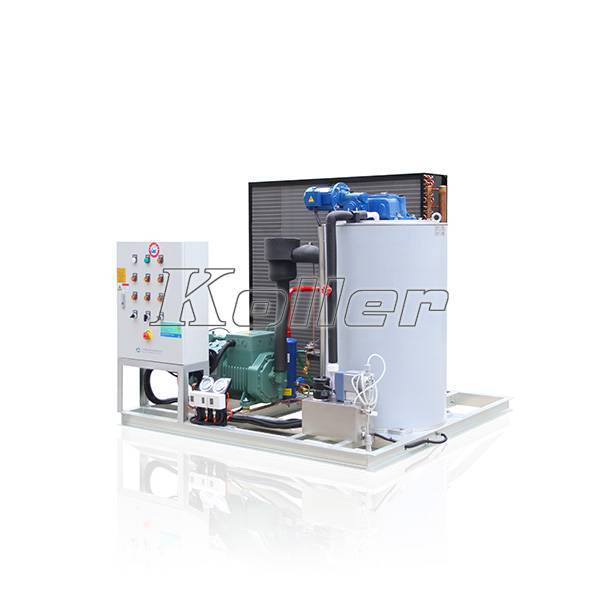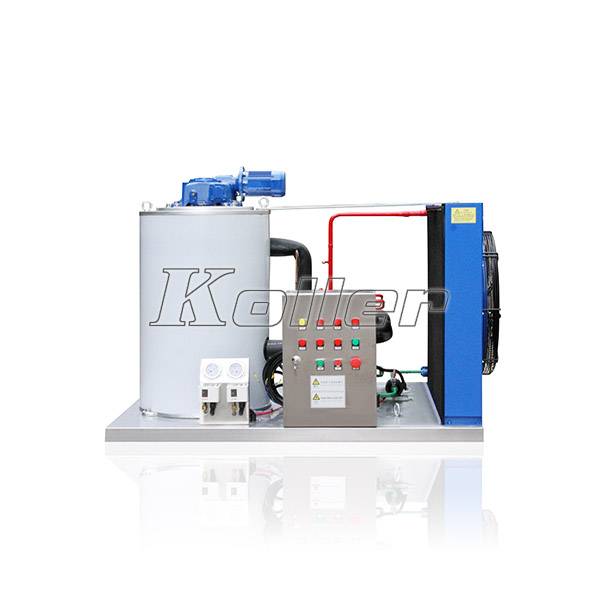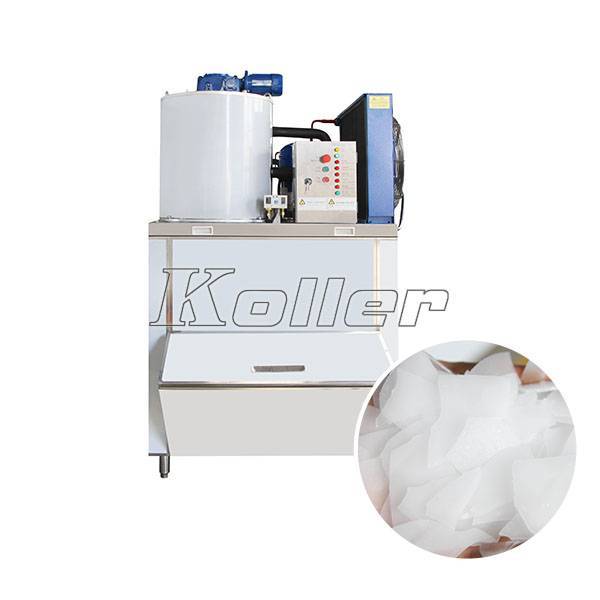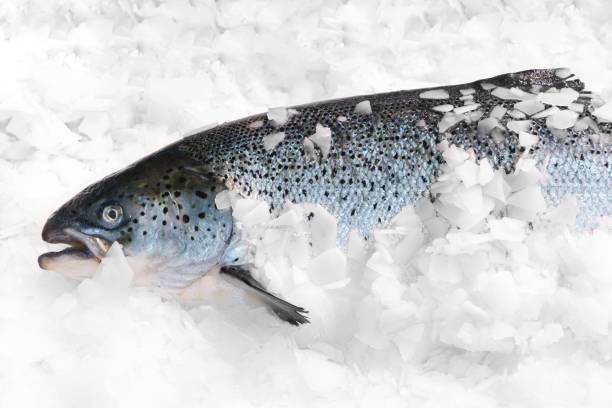In the high-stakes world of industrial operations, whether you’re managing a sprawling ice factory, overseeing a self-contained industrial facility, or supplying these crucial machines as a wholesaler, one thing is undeniably true: your ice machine is more than just equipment. It’s a cornerstone of your productivity, a guardian of your product quality, and a key player in your profitability. When it’s running smoothly, it’s an unsung hero. But when it falters? That’s when the real chill sets in – and not the good kind.
Unexpected downtime, soaring repair bills, compromised product safety, and frustrated clients are all potential consequences of a neglected ice machine. But here’s the good news: steering clear of these frosty pitfalls is largely within your control. This guide is your friendly, no-nonsense manual to mastering industrial ice machine maintenance. We’ll dive into the why, the when, and the how, ensuring your operations stay cool, consistent, and cost-effective.
The Unbeatable Benefits of Regular Ice Machine Maintenance
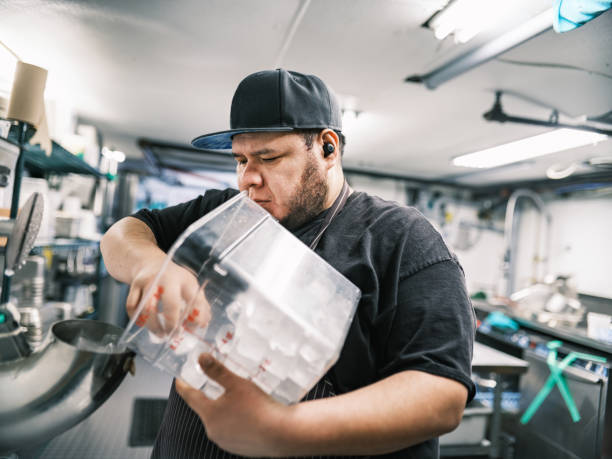
Let’s be honest, adding another maintenance routine to your already packed schedule might seem like a chore. But when it comes to your industrial ice machine, proactive care isn’t just beneficial; it’s fundamental.
Ice Quality & Safety: Because Ice is Food! It’s a simple fact that’s easy to overlook: the FDA considers ice a food product. This means the cleanliness of your ice machine directly impacts the safety and quality of your output. Regular maintenance prevents the buildup of harmful bacteria, 型, slime, and mineral deposits that can lead to off-tastes, strange odors, そして, worst-case scenario, health hazards. For ice factories and wholesalers, your reputation hinges on delivering pure, clean ice.
Maximizing Lifespan: How Long Do Ice Machines Last? This is a question every owner asks. While the exact lifespan varies based on the brand, usage intensity, water quality, and ambient conditions, a well-maintained industrial ice machine can typically serve you reliably for 5 に 10 年, sometimes even longer. Consistent, proper maintenance is the single most important factor in stretching that lifespan to its maximum potential, delaying costly replacements.
Operational Efficiency & Cost Savings: Smart Care Pays Off A clean machine is an efficient machine. When components like condenser coils and water systems are free of buildup, your ice machine doesn’t have to work as hard, consuming less energy and water. This translates directly to lower utility bills. More importantly, preventative maintenance helps catch minor issues before they escalate into major, expensive emergency repairs.
Reliability & Preventing Downtime: The Industrial Imperative For self-contained industries and ice factories, unexpected downtime isn’t just an inconvenience; it can halt production, disrupt supply chains, and lead to significant financial losses. A robust maintenance program is your best insurance against these costly interruptions, ensuring a consistent and reliable supply of ice when you need it most.
Your Industrial Ice Machine Cleaning Schedule
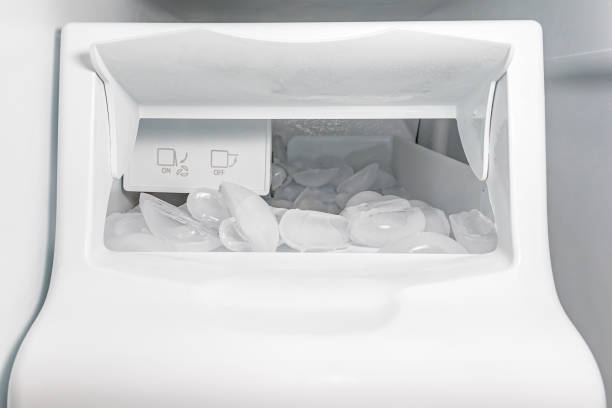
Understanding “how often should a commercial ice machine be cleaned” is crucial. While “commercial” is often used, the principles extend robustly to their industrial counterparts, which often face even more demanding conditions.
General Guidelines:
- Standard Commercial & Flake Ice Machines: Typically require thorough cleaning and sanitization at least every six months.
- 工業用アイスマシン & Makers: Due to their larger scale, higher output, and often more continuous operation, these powerhouses usually need inspection and cleaning more frequently – think every 1 に 3 months.
Factors Influencing Frequency:
- 水質: If your facility uses hard water, mineral buildup (limescale) will occur much faster, necessitating more frequent cleaning cycles.
- Usage Volume: An ice factory running machines 24/7 will naturally require more attention than a facility with intermittent use.
- Environmental Conditions: Facilities with high levels of airborne particles (dust, grease) or yeast (like bakeries or breweries) may need to clean their machines as often as monthly to prevent contamination and ensure optimal performance.
The Golden Rule: Always, always consult your specific ice machine’s manufacturer’s manual. This document is your ultimate guide for recommended cleaning schedules, approved cleaning agents, and specific procedures for your model. Some machines even have maintenance guidelines conveniently labeled on the unit itself.
The Ultimate Industrial Ice Machine Maintenance Checklist
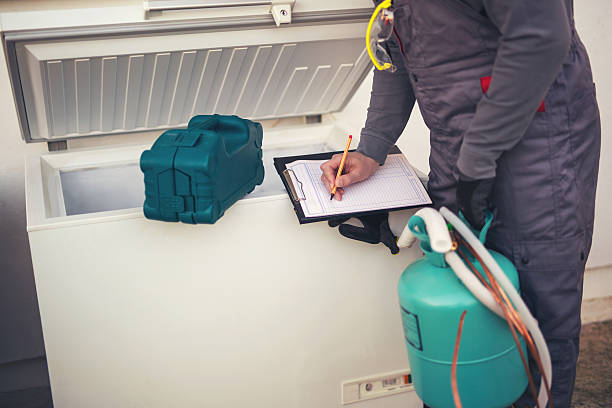
Consistency is key. Having a clear “ice machine maintenance checklist” ensures no critical task is overlooked. Adapt this comprehensive list to your specific machine and operational needs.
I. Daily/Weekly Vigilance (The Quick Wins):
- Visual Inspection: Walk around the unit. Look for any signs of water leaks under or around the machine. Listen for any new or unusual noises like grinding, excessive rattling, or changes in the operational hum.
- Ice Quality & Quantity Check: Is the ice clear, properly formed, and being produced at the expected rate?
- Airflow Assessment: For air-cooled models, ensure air vents are unobstructed and there’s adequate clearance (often around 12 inches) for proper ventilation. Restricted airflow leads to inefficiency and overheating.
- Level Check: Confirm the machine is perfectly level. An unlevel machine can disrupt water distribution over the evaporator plate, impacting ice formation and harvesting.
- Exterior Cleanliness: Wipe down the exterior surfaces with a mild detergent and soft cloth to prevent grime buildup and maintain a professional appearance.
II. Periodic 徹底的なクリーニング & Proactive Maintenance (The Heavy Lifters – Frequency based on your schedule from Section 2):
Water System & Evaporator Deep Clean (Descaling & Sanitizing):
- Why it’s critical: 時間とともに, water systems accumulate mineral scale (limescale from calcium and magnesium) and biological growth (slime, bacteria, 型). This buildup clogs pipes, reduces freezing efficiency on evaporator plates, and poses a serious hygiene risk.
- The Process (General Steps – Always follow your manual!):
- Preparation: Turn off and unplug the machine (unless an automated cleaning cycle requires power). Shut off the water supply. Remove all ice from the bin.
- Cleaning Cycle (Descaling): Circulate a manufacturer-approved ice machine cleaner (descaler) through the water system. This solution is designed to dissolve mineral deposits. Ensure it’s suitable for your machine’s components (例えば。, nickel-safe if applicable, and not too acidic).
- Rinsing: Thoroughly rinse the system multiple times with fresh water to remove all traces of cleaning solution and dislodged debris.
- Sanitizing Cycle: Circulate a manufacturer-approved ice machine sanitizer. This kills bacteria, 型, and other microorganisms.
- Final Rinse: Again, thoroughly rinse the system with fresh water.
- Reassemble & Restart: Reassemble any removed parts, restore power and water, and initiate an ice-making cycle. It’s often recommended to discard the first few batches of ice.
Ice Storage Bin Cleaning & 消毒:
- This is a hygiene hotspot! The bin must be emptied, meticulously cleaned with approved cleaners, and sanitized regularly.
Water Filter Management – Your First Line of Defense:
- Indispensable: Water filters remove sediment, 塩素, and other impurities, improving ice taste and clarity and, crucially, preventing scale buildup that damages your machine.
- Replacement Schedule: 通常 every 6 months, but this can vary. Some systems have indicators. Hard water or high usage may necessitate more frequent changes (例えば。, every 3-4 months). Failure to change filters is a leading cause of ice machine problems.
- Impact of Neglect: Clogged filters lead to reduced ice production, poor ice quality (cloudy, bad taste), increased strain on components, and premature failures.
Air Filter Care (for Air-Cooled Units):
- These filters protect the condenser coil from dust, grease, and debris. Clean or replace them monthly to quarterly, or as needed based on your environment.
Condenser Coil Cleaning (Primarily Air-Cooled):
- Vital for Efficiency: The condenser coil dissipates heat. A dirty, clogged coil acts as an insulator, forcing the refrigeration system to work harder, consume more energy, reduce ice output, and potentially overheat.
- How-To (General): Disconnect power. Carefully vacuum with a soft brush or use a specialized coil cleaner, ensuring you don’t bend the delicate fins. Rinse thoroughly if using a liquid cleaner and allow to dry completely.
Comprehensive Internal Component Check:
- Inspect and clean parts like the water trough, water distribution tubes/nozzles, water curtain/splash shield, float valve, and any sensors for buildup or wear.
- Check fasteners for tightness and corrosion. Inspect wiring and controls for any signs of damage.
Understand Ice Machine Maintenance Cost
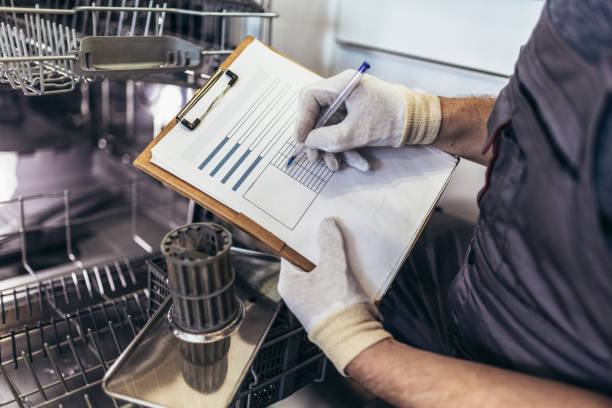
Budgeting for upkeep is a smart business move. の “ice machine maintenance cost” isn’t just an expense; it’s an investment in reliability and longevity.
Routine Annual Maintenance: This typically includes professional cleanings, descaling services, and filter replacements. Costs can range from $200 に $600 毎年 for standard commercial units, but industrial setups may vary based on size and complexity.
Professional Servicing: Manufacturers often recommend a minimum of two professional cleanings and inspections per year.
Repair Costs: The average cost for a commercial ice machine repair can hover around $700, but complex issues involving compressors or control boards can easily climb to $2000 それ以上.
The Cost of Neglect: This is where expenses can truly skyrocket. Emergency repairs are always pricier. Add to that the cost of purchasing backup ice during downtime, lost production capacity, and potential damage to your business reputation. It’s worth noting that a significant percentage of service calls during the warranty period might not be covered if the issue stems from neglect, such as failing to change filters.
For Ice Factories: Maintenance can represent a notable portion of the overall operational budget, potentially 5-10%. Planning for this is essential.
Leasing Considerations: If you lease your equipment, maintenance and repairs are often included in the monthly fee, which can simplify budgeting.
DIY vs. Calling the Pros: Knowing When to Get Expert Help
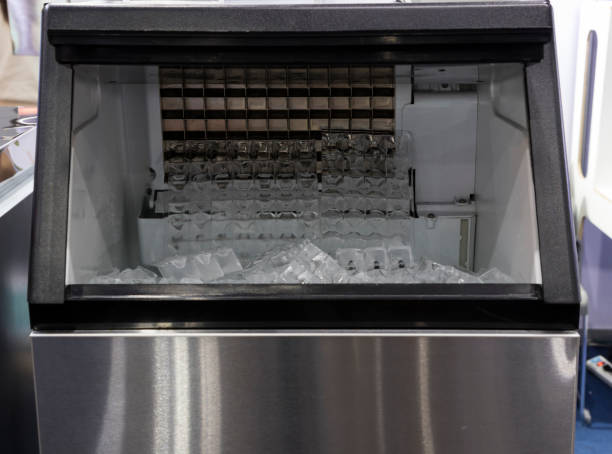
While many routine tasks can be handled in-house, it’s crucial to recognize when a problem needs a professional touch.
DIY-Friendly Tasks:
- Regular exterior cleaning.
- Ice bin cleaning and sanitization.
- Changing water and air filters (if easily accessible and per manual instructions).
- Basic visual inspections.
When to Call a Qualified Technician:
- 冷媒 (フロン) Leaks: Symptoms include significantly reduced ice production or warm ice. Refrigerant handling requires EPA certification and specialized tools.
- Major Electrical Problems: Repeatedly tripping circuit breakers, burnt wires, strong electrical odors, or persistent buzzing/crackling sounds. These are safety hazards.
- Complex Refrigeration System Malfunctions: Issues with the compressor (not running, strange noises), コンデンサー, evaporator, or expansion valves.
- Persistent Water Leaks: If you can’t trace a leak to a simple cause.
- Control Board Issues: Erratic machine behavior, failure to initiate cycles, or persistent error codes not resolved by basic resets.
- Recurring Breakdowns: If your machine frequently fails despite regular maintenance, it signals a deeper problem or that it might be nearing the end of its operational life.
The Value of Scheduled Professional PM: Beyond fixing problems, regular preventative maintenance (PM) visits by a qualified technician (例えば。, twice a year) are invaluable. They can perform in-depth cleaning, calibrate systems, inspect electrical and refrigeration components, and spot potential issues before they become costly breakdowns.
Troubleshoot Common Hiccups (Before You Panic!)
A well-maintained machine is less likely to cause trouble, but here are a few common issues and quick checks (always consult your manual first! ):
Machine Not Running at All?
- Power Check: Is it plugged in? Is the power switch on? Has a circuit breaker tripped?
- Bin Full? The bin thermostat/sensor might have paused production if the bin is full.
Machine Running, But No Ice (or Not Enough Ice)?
- Water Filter: This is a prime suspect! A clogged filter restricts water flow.
- 水供給: Is the water valve open? Any kinks in the line?
- Ambient Temperature Too High? Extreme heat reduces ice production efficiency.
- Dirty Condenser Coil (空冷)? Impedes heat dissipation.
- Machine Needs Cleaning? General internal buildup can hinder performance.
Poor Ice Quality (Cloudy, Smelly, Small Cubes)?
- Cleanliness: Often indicates the machine needs a thorough cleaning and sanitization.
- Water Filter: An old or ineffective filter can lead to impurities in the ice.
Keep Operations Smooth & Profitable
For self-contained industries, bustling ice factories, and dedicated ice machine wholesalers, your equipment is a critical asset. Investing time and effort into a consistent, thorough industrial ice machine maintenance program isn’t just about preventing problems – it’s about safeguarding your production, ensuring safety, maximizing your equipment’s lifespan, and ultimately, protecting your bottom line.
By following the guidelines in your manufacturer’s manual, implementing a robust ice machine maintenance checklist, understanding how often your commercial (and industrial) ice machine should be cleaned, and budgeting for the necessary ice machine maintenance cost, you’re setting your operation up for sustained success. You’ll know how long do ice machines last when they’re treated right – and that’s a long, productive time.
で gzkoller.com, we understand the demands of industrial ice production. If you have questions about maintaining your current equipment or are considering upgrading to a new, efficient system, our team of experts is here to help. Let’s work together to keep your operations running cool and your profits flowing.

